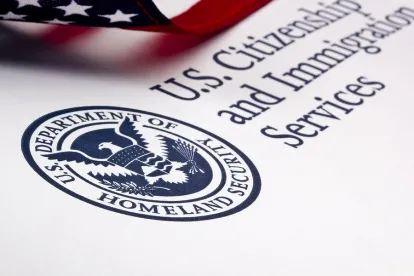The Department of Homeland Security (DHS) published a Final Rule, which, if left intact, will implement major changes to the H-1B visa program. The new rule would do away with the random lottery system currently used to issue the annual quota of 85,000 new H-1B visas and replace it with a selection system weighted to favor petitions with higher salary offers for the sponsored H-1B worker.
This Final Rule, entitled Modification of Registration Requirement for Petitioners Seeking To File Cap-Subject H-1B Petitions, was published on January 8, 2021 and takes effect 60 days later on March 9, 2021. Despite receiving almost 1500 comments, DHS declined to change the regulatory text proposed in the Notice of Proposed Rulemaking (NPRM) published on November 2, 2020. We summarized the NPRM in a previous post.
Per current regulations, H-1B workers must be paid the “required wage,” which is the higher of either (1) the salary paid to other U.S. workers in the same role and location or (2) the prevailing wage for the job in the same location. Prevailing wages can be obtained in several ways, including using private wage surveys, but the vast majority of H-1B petitions rely on the Department of Labor’s (DOL) Occupational Employment Statistics (OES) program, which gathers salaries for hundreds of job categories across specific geographic areas. Those wages are broken into four “Wage Levels” (I, II, III, and IV), depending on the complexity and experience required by the role, ranging from Level I, mainly entry-level workers, to Level IV, experts and experienced leaders.
Under the current H-1B Cap System, an employer now completes an electronic registration, administered by the US Citizenship and Immigration Services (USCIS), for each potential H-1B employee seeking an initial H-1B visa under the annual quota. All registrants are then included in the H-1B computerized (random) lottery; each would-be H-1B employee holding the same chance of selection. If the registrant is selected, the employer is permitted to file an H-1B petition seeking employment that will commence on or after October 1st. Selection in the lottery only guarantees the right to submit a petition, adjudication is based on the facts and law, with an increasing number of petitions being denied in recent years.
In March 2020, the number of valid registrations submitted for the Fiscal Year (FY) 2021 H-1B cap selection process was 269,194 (145,950 regular cap and 123,244 master’s cap). Initially, USCIS selected 106,100 registrations in its random lottery. However, due to the impact of the COVID-19 pandemic, USCIS did not receive enough H-1B petitions during the initial filing period to meet the number of petitions it projected needed to reach the H-1B numerical cap, so the selection process was re-opened and run again in August 2020. USCIS selected 18,315 additional registrations in August 2020 for a total of 124,415 selected registrations for FY 2021. As a result, would-be H-1B beneficiaries had a 46% chance of selection.
The New Lottery System
The new program would replace the random H-1B cap lottery selection process and replace it with a wage-level-based allocation process by prioritizing registrants with the highest OES wage level, with Level IV petitions being selected first, then Level III, and so on, until all of the visa slots are filled. It will work as follows:
-
Once there are enough registrants in a Wage Level to exhaust the remaining petitions, then a random mini lottery would be held among that Wage Level’s registrants to complete the allotment. In other words, if all but 10,000 visas are used by Levels III and IV, and there were still 20,000 Level II registrants, the remaining slots would be randomly divided among the Level II petitions via lottery, with no Level I registrants qualifying.
-
Prevailing wages obtained from private wage surveys would be slotted into the corresponding OES Wage Level, with any lower than the OES Wage Level I being marked “Wage Level I and below”.
-
All of the H-1B registrants would first be run though the new process to fill the 65,000 standard H-1B openings and then those remaining unselected registrants with advanced US degrees would be run through the 20,000 Master’s Cap allotment, also using the new wage-weighted process.
-
If there are not enough petitions to require a lottery, then the wage levels would not be considered until the last day that the quota is filled, when a mini-lottery would be used to select only from among that day’s petitions based on the Wage Level ranking. This is unlikely since a lottery has been held for the past eight years with no signs of stopping.
Once an H-1B visa has been issued, under both the current and proposed practices, the visa holder is considered to be “counted against the cap” and does not have to resubmit to the lottery for future extensions or changes in employer as long as the H-1B visa holder has not exceeded the total years permitted in H-1B status. As a result, the proposed changes should not affect current H-1B visa holders.
The Impact to Employers
DHS claims the rule change is necessary and consistent with the H-1B program’s original intent and the president’s calls to protect U.S. workers, root out visa fraud, and focus on the “best and the brightest” when issuing U.S. visas. DHS argues that the weighted lottery will “incentivize employers to offer higher wages, or to petition for positions requiring higher skills and higher-skilled aliens that are commensurate with higher wage levels, to increase the likelihood of selection for cap-subject petition filings.”
The H-1B program is been widely used to hire many entry-level positions, particularly in STEM-related industries where there is a dearth of U.S. citizen applicants. In practice, this rule change will likely exclude tens of thousands of applicants in positions that are considered entry-level or that require lower levels of experience, potentially excluding at least all Level I petitions. The new rule would also disfavor smaller companies who can pay the traditional “required wage,” but may be unable to offer salaries to match the higher offers from larger competitors. It will also significantly impact foreign students studying at U.S. universities since the H-1B visa is often the only employment visa available for recent graduates in entry-level positions. If the rule goes into effect, it is expected that enrollment of foreign students at U.S. universities will decrease, perhaps drastically.
In opposition to the Final Rule, DHS received hundreds of comments discussing the negative impact of these changes will have on the employment of new graduates and entry-level workers, academic institutions, healthcare workers and facilities, employers, and the economy. DHS was not persuaded.
Possible Challenges and Changes
As explained above, this Final Rule will take effect on March 6, 2021 – just in time for the beginning of the H-1B Cap Season. However, with an upcoming change in Presidential administrations and a Democratic controlled Congress, this rule could be suspended, congressionally overturned, or challenged in federal court. The incoming Biden administration has already indicated its intent to issue a memo upon Inauguration seeking to halt or delay so-called “midnight regulations” issued by President Trump in the final days of his administration. Moreover, Congress, under the Congressional Review Act, could overturn this rule.
Alternatively, the new administration could choose to let the rule stand, or seek to replace it with another rule that retains a wage-based selection process. In fact, President-elect Biden’s campaign platform mentioned establishing a wage-based allocation process for temporary foreign workers and enforcement mechanisms “to ensure [employment-based visas] are aligned with the labor market and not used to undermine wages” or “to disincentivize recruiting U.S. workers” for in-demand occupations.





 />i
/>i
